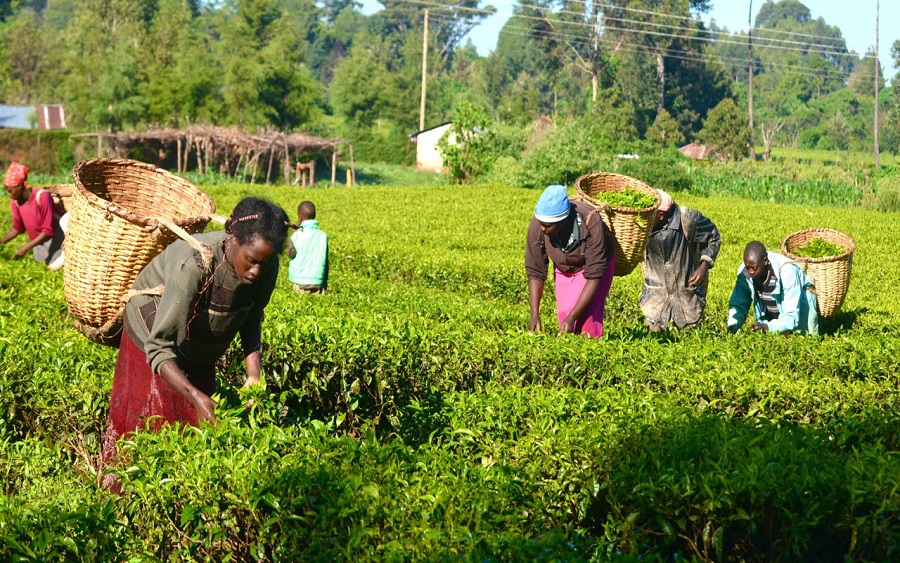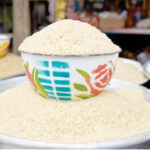Many people have always known that something is wrong with the way agriculture is practised in Nigeria, and indeed most of Africa. Firstly, agriculture in this region has refused to follow the historical trend where the proportion of the population engaged in the sector declines over time while output actually rises.
Secondly, agriculture has remained largely an enclave of the aged, sometimes sick rural dwellers, who unfortunately have the burden of feeding healthy urban dwellers. Thus the pictures of farmers, both male and female, have remained mainly those old fellows who are just managing to hold to life and a source of income.
- Arewa Consultative Forum Opposes Ransom Payment, Okays Negotiations With Bandits – TRUST TV NEWS
- Afenifere asks Buhari to resign
The consequence is that our agriculture has remained unattractive, marked by low yield and low productivity. This explains why the sector remains enveloped by poverty, rather than helping to fight abject poverty in the rural areas.
This is the tragedy in our development paradigm. It is an irony that the nation depends on the sick, poor farmers to feed the rich, healthy urban dwellers. This is not sustainable in the long run. The food chain will snap because those at the supply end are vulnerable and cannot guarantee that supplies will continue tomorrow.
All these are because the nation or continent has not really recognised the place of agriculture in our socioeconomic development. Our leaders have continued to treat agriculture as the backbone of the nation’s economy. But the sector is much more than that: it is actually Oxygen to the economy. With a broken backbone someone could still live on, somehow; without oxygen, there is instant death.
These are the arguments of a young Zambian lady, a medical doctor who prefers rather to be addressed as a farmer. In her country, Zambia, people call her a doctor (which she is), “but I want to be called a farmer because the problem we have in Africa is hunger. We don’t need drugs. I work in a hospital and I can guarantee you, 80 per cent of the problem why we are losing young people is because of poverty,” the lady whose name sounds like Tamara Kaunda says with an electrifying passion.
There are children millions of children across the continent who will go hungry today. Even many who will eat will not have the appropriate meals. Prices of food are high, so many families cannot provide the micronutrients that children need for healthy growth in the early years. That is why African graves are the richest because we have lost so many young people to disease and hunger, says Ms Kaunda.
Ms Kauda says that as part of the means of fighting poverty in the countries, what the malnourished African children need more is the right nutrition, instead of drugs. It was that realisation that made her switch from medicine to agriculture.
She spoke in video obviously taken at a conference with the theme: “Youth Empowerment in Agriculture”. Waving what looks like the programme brochure, she declares that if African nations and the international agencies involved in agriculture want to make the sector attractive to young people, they must start by publishing it, or giving it the right frame to make it attractive.
“If a young person from the village sees the picture (of an old woman on the cover of the programme), they will say, “Oh, this is what we are having here”. With that a typical young person, graduate or school leaver, will not be interested in agriculture because it has been presented as the place for retirees or someone whose efforts in other areas have been unsuccessful. But agriculture should not be the last resort, the choice taken after all others have proven abortive.
The effect is that many, especially young people, actually run away from agriculture instead of being released from it. Those who were in agriculture the last time you saw or heard about them but have hung their hoes and cutlasses, washed their boots and headed for the city, did so because they do not see a future in an unchanging sector.
“But if they see a young person here, very attractive like me (the audience bursts into laughter), and you put me here, the young men in the village will say, “Oh, where am I going to find this woman? Let me join agriculture,” said our Zambian friend.
Jeffrey Sachs in his book, The End of Poverty: Economic Possibilities of Our Time, asserts that economic growth is often accompanied by an increase in urbanisation, that is a rise in the proportion of the population living in urban areas.
Sachs gives two reasons for this positive correlation between economic growth and urbanisation. The first is more appropriate here, and that is a rise in agricultural productivity. As output in agricultural rises, food prices drop, which means that fewer people are needed to produce food for the entire nation.
As food production per farmer rises, food prices fall, inducing farmers and especially their children, to seek employment in nonfarm activities.
If the agricultural sector releases the surplus labour in it, there will be little or negligible impact on food supply and prices because the increase in output through higher productivity will ensure that in both the city and rural areas, there will be enough to meet demand. But this is not the case with our agriculture, which is why whether there are few or more involved in it, the nation still faces food shortage.
The current situation where farmers are unable to go to the farms freely in the food producing areas as a result of insecurity will add to this. It will cut food supply to both the urban dwellers and rural folks.
A 2016 study by the World Bank on Nigeria’s agriculture noted that a focus on this sector was critical as, according to the Bank, it will remain the largest employer for the foreseeable future. Remember the oxygen analogy above?
But the Bank noted that there is a disconnect. While the sector contributed 22 per cent to GDP in 2012 for instance, it employed half of the working population. The World Bank pointed out that raising agricultural productivity, which would include incorporating small farmers in value chains, increasing access to markets, inputs, and technology, would both help raise income opportunities for small holder farmers and simultaneously tap into the significant potential for domestic agriculture and agribusinesses in Nigeria.
Between 2009 and 2019, the contribution to GDP ranged from 19.99 per cent to 26.75 per cent, according to some figures. With the percentage of the labour force in the sector not significantly different from what the World Bank found out for year 2012, it means that a lot of excess labour is still engaged in the sector.
Part of the process of making agriculture attractive to young men and women is to improve productivity in the sector. This involves attracting a crop of young Nigerians, who accept agriculture as a profession, and backing them up with the necessary materials. Governments must create the enabling environment for the African youth to be profitably involved in agriculture. As our Zambian lady noted, the continent and individual countries cannot have such much vast land and yet the citizens are languishing in poverty.
Productivity is a product of the worker’s skills, equipment and environment. This means that farmers of today and tomorrow must have the tools and infrastructure to work with: rural roads, electricity, potable water, etc. There should be access to markets for them and structures that enable them take advantage of the value chain to maximize their benefits.

 Join Daily Trust WhatsApp Community For Quick Access To News and Happenings Around You.
Join Daily Trust WhatsApp Community For Quick Access To News and Happenings Around You.


